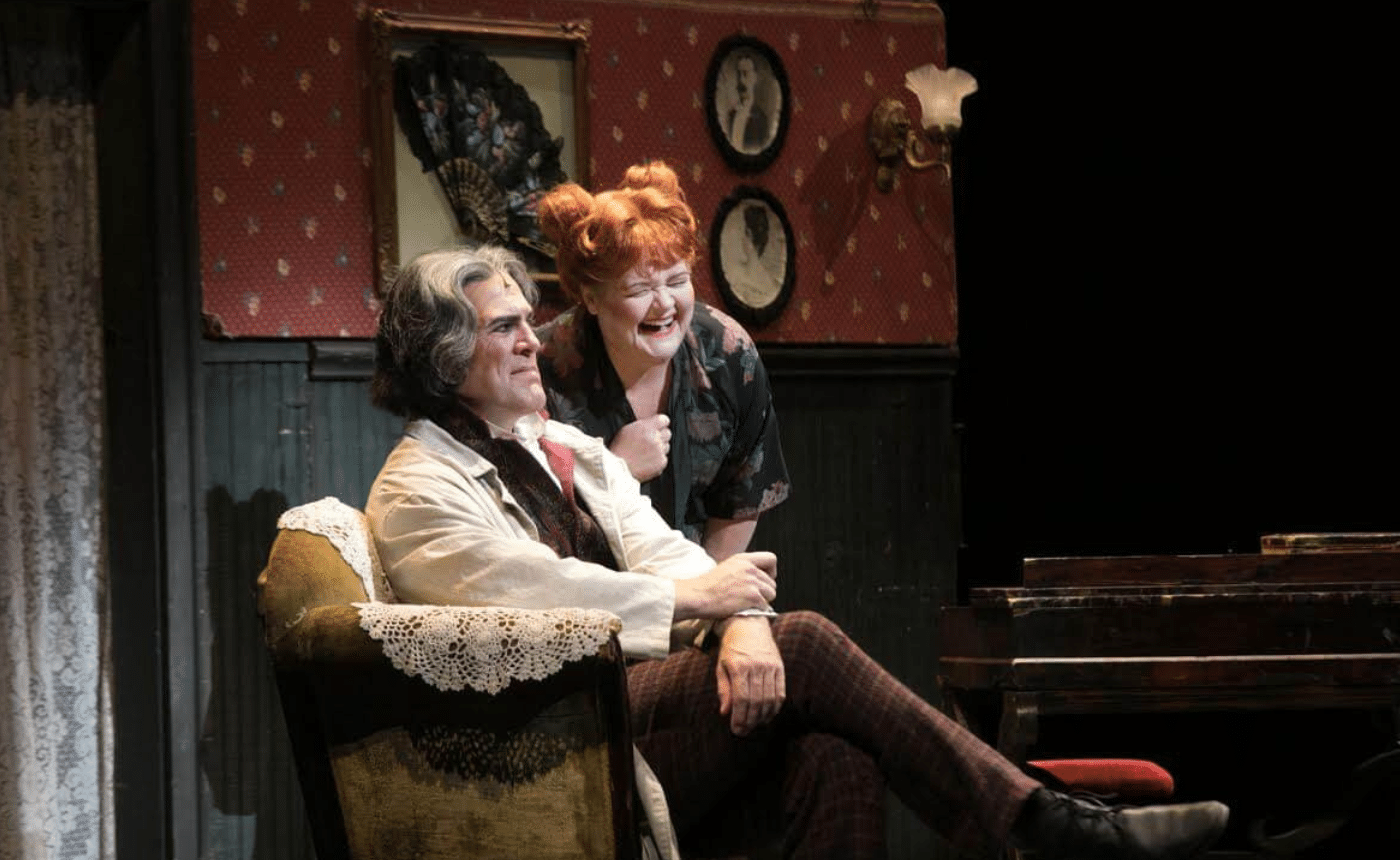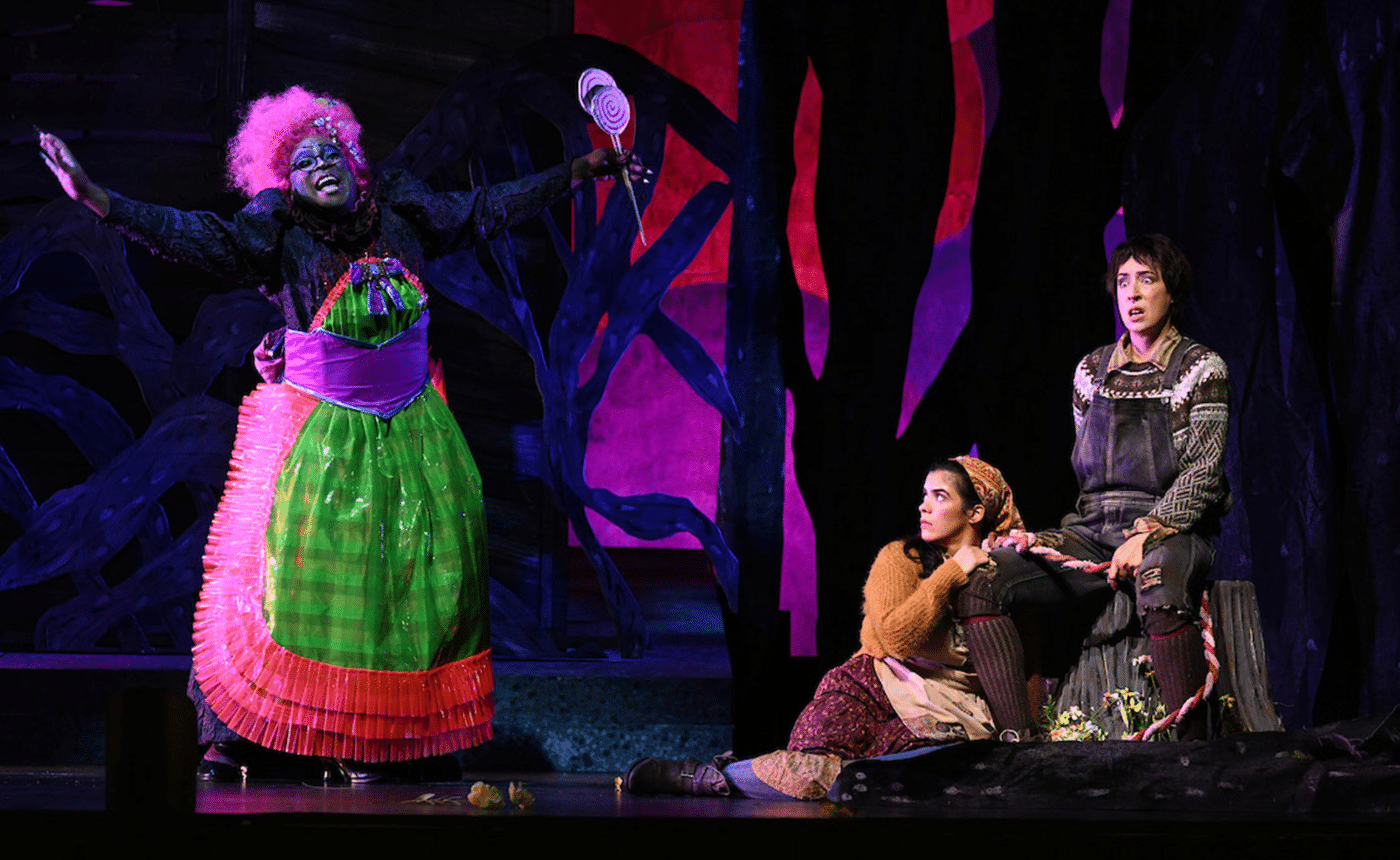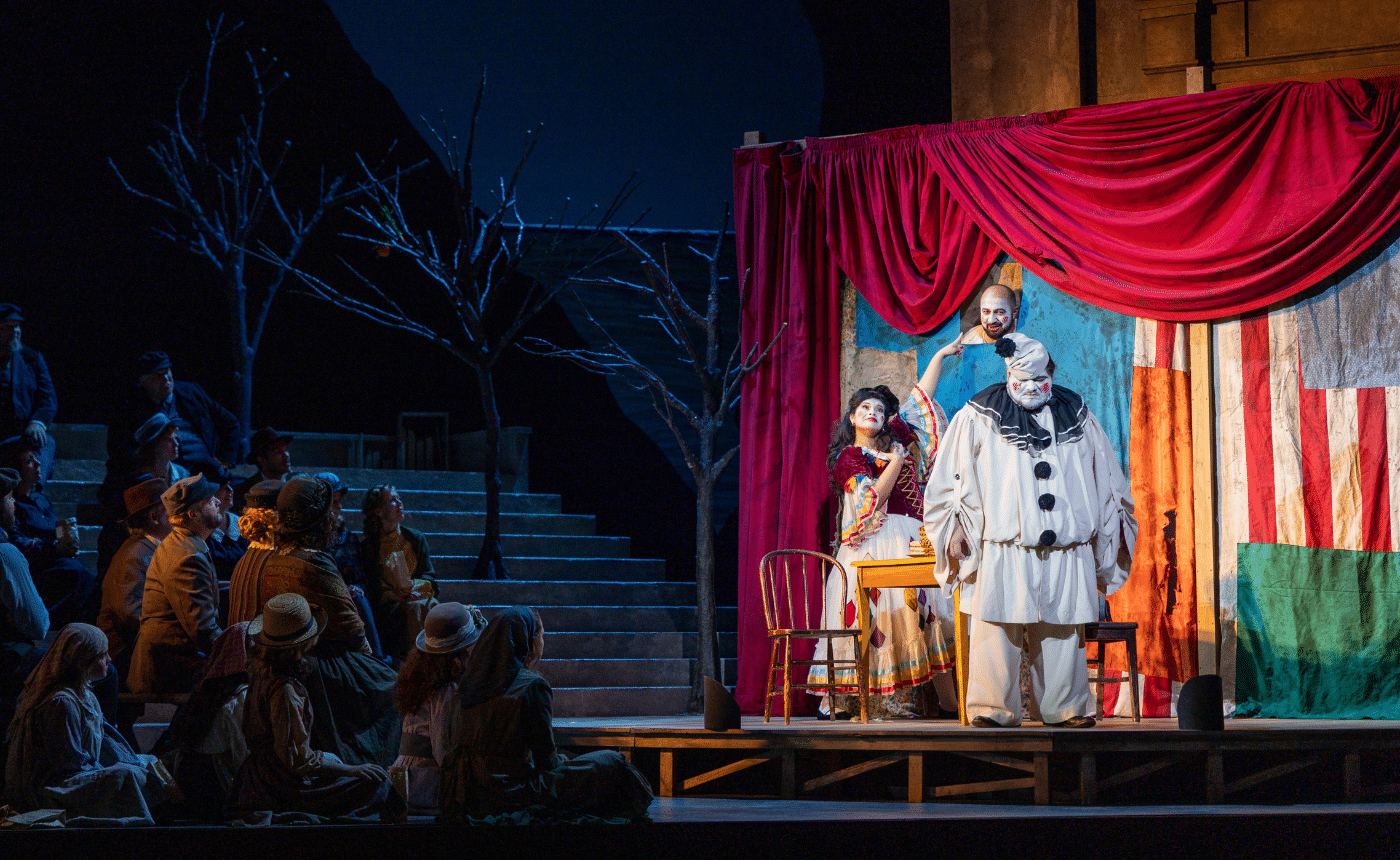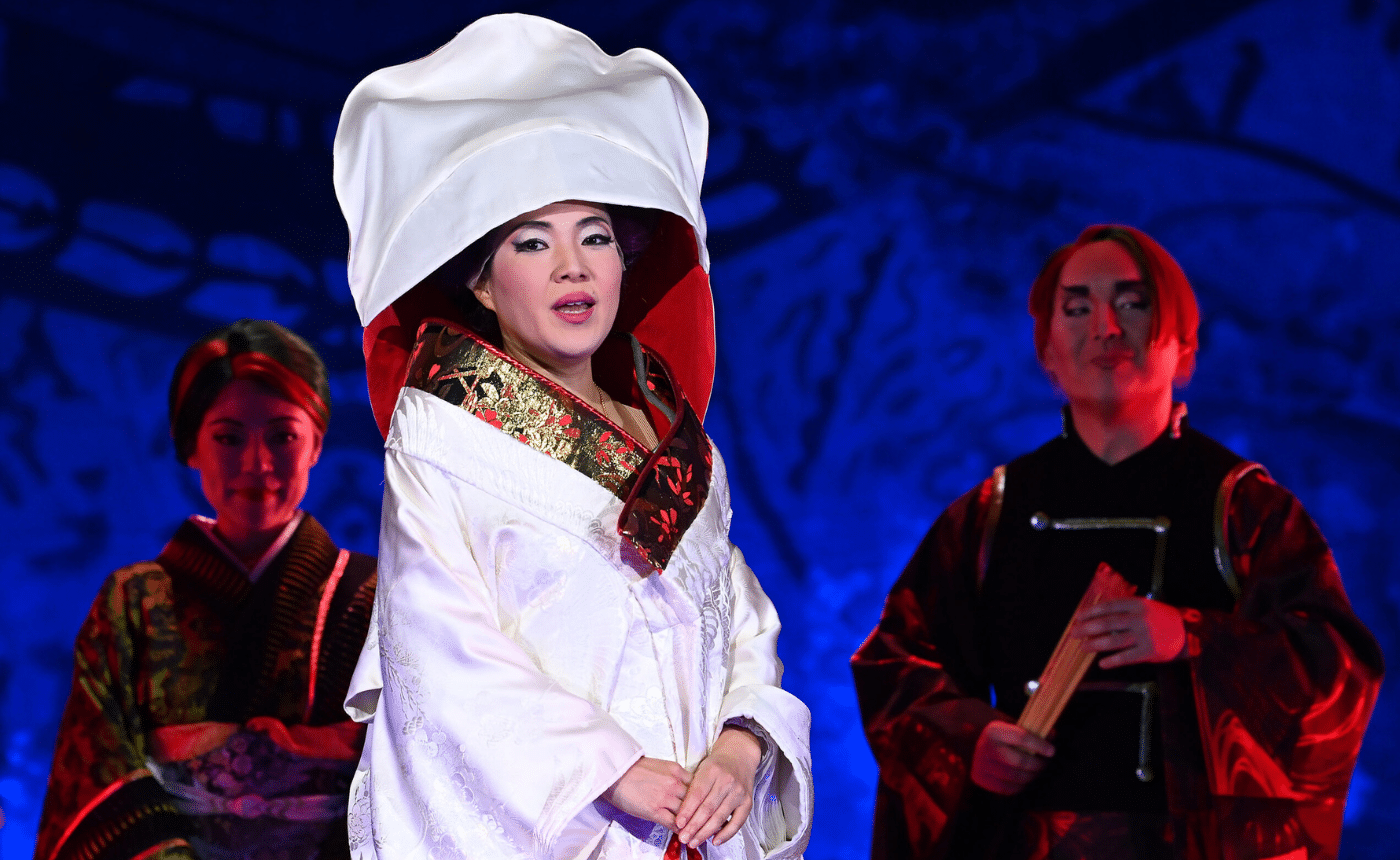Verdi’s RigolettoSynopsis
An Opera in Three Acts
Music by Giuseppe Verdi (1813 – 1901)
Libretto by Francesco Maria Piave (1810 – 1876)
Based upon the play Le roi s’amuse by Victor Hugo
ACT I
A dark atmosphere of forced gaiety prevails at a party in the court of the Duke of Mantua, a heedless libertine. Rigoletto, physically deformed and costumed for his job as court jester, flits among the guests; it’s his task to keep the courtiers laughing and flatter the duke’s ego. In a jaunty aria like an anthem of lechery, the duke boasts about his sexual prowess: This woman or that one, it really doesn’t matter. He dances with the Countess Cepráno as Rigoletto taunts her enraged husband, who feels helpless to defy his patron the duke. The courtier Marullo enters, gleeful with juicy gossip: It seems that the pathetic Rigoletto has a young mistress at home! We know what the gossipers don’t: This young woman is actually the jester’s daughter, whose existence he’s kept secret from the court. But Rigoletto, unaware that he’s suddenly become the goat of the latest gossip, continues to taunt Ceprano, who plots with the others to punish him.
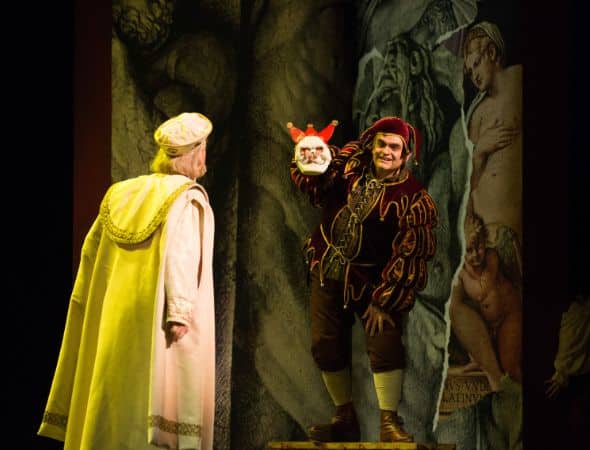
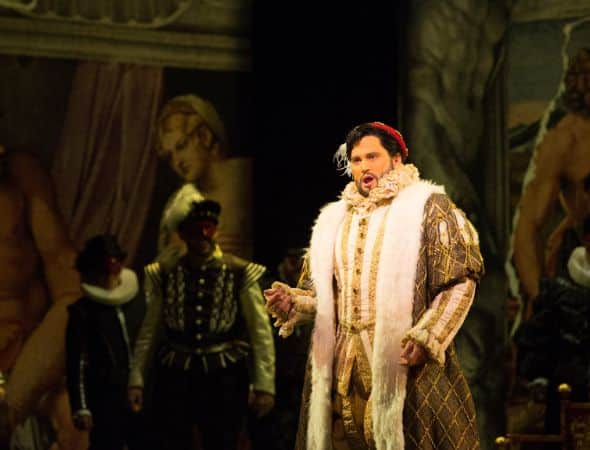
Monterone, an elderly nobleman, forces his way into the party, angrily denouncing the duke for seducing his daughter. As he is arrested and ridiculed by Rigoletto, Monterone angrily denounces the partyers and Rigoletto, fatefully cursing them to know a father’s agony like his own. This is the jester’s deepest fear, and as he rushes home, he broods over Monterone’s words. In his secluded neighborhood he encounters Sparafucile, an assassin and maker of mayhem-for-hire, who offers his services. Though Rigoletto resists, his refusal is less than absolute. He enters his house and warmly greets his daughter, Gilda. Afraid for her safety, he warns her nurse, Giovanna, not to let anyone into the house.
When Rigoletto leaves, the duke appears and bribes Giovanna, who admits him to the garden of Rigoletto’s house. Having heard Gilda secretly admiring him at church—but expressing the wish that he were poor—he tells her he is a humble student. After he leaves, she tenderly reflects on her newfound love in an aria of naïve simplicity, dreamily repeating the “dearest name to her heart”—the false name he has given her. Soon courtiers gather outside the garden intending to abduct Rigoletto’s “mistress.” Coming upon the jester, they cleverly improvise, admitting them into their gang, blindfolding him as part of his supposed disguise, and even tricking him into holding a ladder against his own garden wall so they can abduct Gilda from her bedchamber. Once they are gone, Rigoletto rushes into the house and collapses in despair, remembering Monterone’s curse.
ACT II
Though nothing about the plan to abduct Gilda was particularly unusual, the duke is disturbed about it. But when the courtiers return and tell him the story of how they took the girl from Rigoletto’s house and left her in the duke’s chamber, the duke delightedly hurries off to take advantage. Soon Rigoletto enters to search for her. The plotters are astonished to find out that Gilda is Rigoletto’s daughter rather than his mistress, but still prevent him from storming into the duke’s chamber. The jester ragefully accuses them of cruelty, but his anger abruptly ebbs away and he almost collapses in grief as he begs them for compassion. Gilda appears and runs in shame to her father, who orders the others to leave. Alone with Rigoletto, Gilda tells him of the duke’s courtship, then of her abduction. When Monterone passes by on his way to execution, the jester swears that both he and the old man will be avenged. Gilda begs her father to forgive the duke.
ACT III
Rigoletto arrives with Gilda at the inn where the sinister Sparafucile lives with his sister, the alluring Maddalena, who serves as bait for his entrapments. As the duke sits inside laughing at the fickleness of women and amusing himself with Maddalena, Gilda and Rigoletto watch from outside. The jester sends Gilda off to Verona disguised as a boy and pays Sparafucile to murder the duke, but Gilda returns and overhears Maddalena urging her brother to spare the handsome stranger and kill the hunchback instead. Sparafucile refuses to murder Rigoletto, but agrees to kill the next stranger who comes to the inn, so that he will be able to produce a dead body; Gilda decides to sacrifice herself for the duke. She knocks at the door and is stabbed. Rigoletto returns to claim the duke’s body; as he gloats over the sack Sparafucile has given him, he hears his supposed victim reprising his signature aria, “La donna e mobile,” in the distance. Frantically tearing open the sack, he finds his daughter, who dies asking his forgiveness. Rigoletto collapses in grief with Monterone’s curse on his lips.



